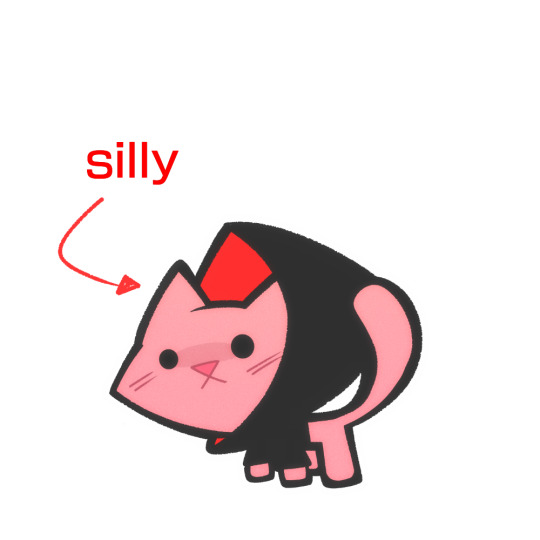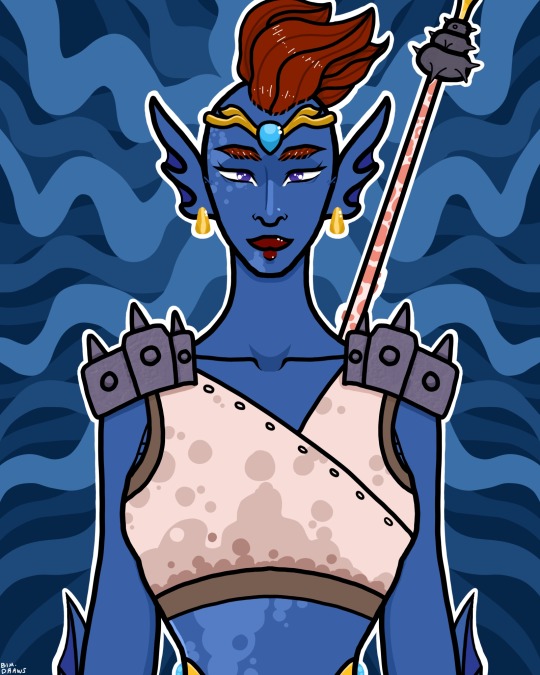#orcos
Explore tagged Tumblr posts
Text

DND's Orcus, Prince of Death, named for the Greek Figure Orkos, Overseer of Oaths.
8 notes
·
View notes
Text
Las Razas Xenos en Warhammer 40K
En el universo de Warhammer 40K, la humanidad no está sola en su lucha por la supervivencia. Numerosas razas alienígenas, conocidas como Xenos, habitan la galaxia y representan una amenaza constante para el Imperio de la Humanidad. Estas civilizaciones tienen sus propios objetivos, tecnologías y culturas, y muchas de ellas buscan la destrucción, subyugación o aniquilación total de la humanidad. #warhammerlore #WarhammerFans #warhammer40k #Orkos #necrons40k #necrons #tyranids #tiranidos #eldar #aeldari #aeldari40k #tau #orcos #orks #drukhari #grimdark






#warhammer 40k#geek culture#grimdark#warhammer lore#orks#orcos#orcs#tiranidos#tyranids#eldar#aeldari#necrons#necrones#drukhari#tau#warhammer fans
2 notes
·
View notes
Text
Un clásico que hay que poner todos los años.
0 notes
Text

orcos
0 notes
Text

Equipo de #orcos de #BloodBowl 3a edición 1998. Pintado por un #novato al estilo #cartoon , como sacado de una peli de animación de #Fantasia , o al menos esa era la intención :S me ha llevado entre 15 a 20 horas aprox :S #Warhammer #Fantasy #WarhammerFantasy #orcs #orks #orkos #orkoz #painting #minis #ComicStyle #CartoonStyle #noob #miniaturas
0 notes
Text


Orco y Malteada
Orco y Malteada :]
#fanart#the grim adventures of billy and mandy#las sombrías aventuras de billy y mandy#2000s cartoons#orco#malteada#grim and evil#Nergal#Milkshakes
251 notes
·
View notes
Text
Haci es

62 notes
·
View notes
Text




I finally finished the four ladies from Dungeons and Drag Queens!
#orco#orc#fairy#tiefling#merfolk#dnd#dungeons and drag queens#dungeons and dragons#dimension 20#my art
36 notes
·
View notes
Text
Orkos de Warhammer 40K
Los Orkos son una de las razas más icónicas y destructivas del universo de Warhammer 40K. Conocidos por su brutalidad, amor por la guerra y extraña tecnología, los Orkos representan una amenaza constante para todas las civilizaciones de la galaxia.

#warhammer 40k#geek culture#warhammer lore#orks#orks40k#orkos#orkos40k#orcs#orcos#xenos#gretchin#snotling#squigs
1 note
·
View note
Text
"è orco e mangia li garzone"
So I went to look up the etymology of the word "ogre". The first time we find it in this form is in the late 17th century, when Perrault uses it for his fairy tales, but in italian the word "orco" was already in use for centuries. Ariosto had an episode in the 17th and 18th canti, where the king Norandino and his wife Lucina must escape an orco, in a manner similar to Odysseus and Polyphemus.
But the earliest mention of the term (that I could find) comes from the late 13th century, from the only known sonet of senese Poet Jacomo "Granfione" de' Tolomei. This parodic sonet uses fairy tale characters like ogres, witches and talking animals to make fun of Granfione's contemporaries, at the expense of their sex lives.
I did try to post it here with a translation from yours truly.
Warning: period typical homophobia
Original (volgare toscano):
Le favole, compar, ch'om dice tante, Son ver per cert' e nessun le contenda: Ch'anticamente fûr orchi e gigante E streghe, che andavan en tregenda.
E parlavan le bestie tutte quante Secondo Isòpo conta en so' leggenda; Ed ancor oggi viene 'l semegliante: E s' i' nol provo, vo' che l'om me penda.
Ser Lici è orco e mangia li garzone, E 'l Muscia strega, ch'è fatto, d'om, gatta, E va di notte e poppa le persone.
Guglielmo de Bediera è per ragione Gigante, che n'è nata la sua schiatta; Ser Benecasa parla, ed è montone.
And here's my translation:
The tales/fables, pal, that men tell a lot,
Are surely true and no one can contend:
That in ancient times there were ogres and giants
And witches, that went to sabbaths
And all beasts talked
As Aesop tells in his legend
And still today similar things happen
And if I don't prove it, may I be hanged.
Sir Lici is an ogre and eats boys,
And Muscia is a witch, and turns, from man to cat,
And goes out at night and sucks off people.
Guglielmo de Bediera is for good reason
Giant, for thus his family was born;
Sir Benecasa talks, and is a ram.
And now for some more notes: the Granfione uses the term "favola", fable, since a distinction between them and fairy tales hadn't yet been made, and are to this day often used interchangebly. With the mention of child-eating ogres, great giants and night-wandering witches, he is referring to folk tales, while with the talking animals he directly references Aesop's famous fables.
Now he turns to taking jabs at his contemporaries from Siena, all except for one completely unknown to us (which takes away from the poem's strength but anyway). Calling Sir Licci an ogre for eating boys seems to be referring to him going after young men (and with a certain voracity it would seem). Muscia get's also accused of sodomy, though he's a different case: for him, we might know who it actually is, the senese poet Nicola Muscia da Siena, who wrote three poems, one mocking the failed pilgrimage of Guido Cavalcanti, and two "dreams" (nice scenarios imagined for a loved one) about a certain Lano (perhaps Lano da Siena, whom Dante meets in the 13th canto of the Inferno?). The "turning into a cat" is also a pun: we know from Franco Sacchetti's "Trecentonovelle" (from the 187th novella) that in Tuscany, "Muscia" was a dialectal term meaning "kitty". Calling Guglielmo de Bediera a giant could be a jab at his (actually diminutive) size. Finally sir Benecasa seems to have un unfaithful spouse, as he's called a ram (-> "cornuto"/horned->a cuckold)
Funny how we have gotten a fairy tale parody centuries before the main written-down fairy tale texts.
For the notes I relied on Mario Marti's "Poeti giocosi del tempo di Dante" (playful poets from Dante's time), the articles from the Treccani "Dizionario biografico degli italiani" (biographical dictionary of italians), and also some from Giovanni Dall'Orto's blog on gay history and culture (here)
@adarkrainbow this is the sonet I mentioned
#Ogre#orco#fairy tales#literature#poesia#poetry#sonetto#poesia italiana#long post#Jacomo de' Tolomei#Fairytale parody#medieval literature#Sonet#Not sure if this was written all that well but I was excited at the discovery and wanted to share with you guys#Maimon's rambles#Maimon's ramblings
8 notes
·
View notes
Note
Hello! Love your ogre research, first of all. So something weird here, in my English translation of Ariosto the monster that threatens Angelica (the orca) is translated as “sea orc”, and the blind ogre who acts like Polyphemus (the orco) is translated as “land orc”. (And by extension “sea orc” evolved into a dragony thing in some modern fantasy books). Any idea why that happened instead of just calling them “orca” and “ogre” or something?
Ah yes the Orlando Furioso. I meant to include this in my big "What makes an ogre" series but never got the time.
So... I have to admit I am not an expert on Italian language, especially old fashioned Italian language, and I also am no expert on the full Orlando Furioso (it is a very complex work I only got started on recently). But here's the thing...
It is well-known that the Orlando Furioso was put together by taking elements of Greco-Roman mythology and reinventing them completely. The Orco and Orca are this. The Orco is basically Polyphemus reinvented - but here with two eyeballs made of bone instead of one eye promptly gouged out. The Orca meanwhile is the sea-dragon of the Andromeda story given a new name. So far so good.
But "Orca" is not meant to evoke the sea animal of the same name, the "killer whale", and that's something everybody has to remind people of (even the Wikipedia article for the Orca in Italian points out it is NOT the "orca" as in the sea creature). Orca is used here as the male form of "orco" - and the "orco" is indeed the same name of creature used by Basile to designate his proto-ogres. The "uercos", which is just "orcos" spelled differently.
So should we translated "Orco" as "ogre" and "Orca" as "ogress"? Well... No, it wouldn't work. At least for the Orco it can work since he sports typical ogre traits and DID influence the rise of the ogre figure in France (I don't think it is a random choice if madame d'Aulnoy's ogres are cyclops). But the Orca clearly isn't the same kind of creature - it is a sea dragon, or a sea monster, or some big sea snake. So this hints at the fact that "orco/orca" doesn't actually translated, in the context of the Orlando, as "ogre"...
You see, by Basile's Pentamerone, the "orco" is clearly an "ogre" in the fairytale sense of the word - though some English translators decided to go for "ghoul" because they didn't understand why an ogre would have magical powers, unaware that ogres were originally sorcerers/fairies of their own rights. They preferred to evoke the shapeshifting Arabian demons, allowing for an easier explanation of "Oh yes the ogre turns into all sorts of animals and curses people when it can't eat them".
[Note: As I write this I realized "orchi" is apparently the plural of "orco"? Well... I'll keep calling them "orcos" for now, but another proof I am not expert when it comes to these things]
But the author of the Orlando Furioso seems to have had a different and more ancient meaning in head for "orco". If you ask me, what seems very likely (though I am no expert) is that "orco"/"orca" is here taken as meaning "man-eating monster". Not just a fairytale ogre, but any kind of creature that wants to devour human beings. As a result the "orco" is an ogre-like giant, while the orca is a sea monster-dragon. "Orco/a" is used in the same broad sense as how "fairy" could be used in the British Isles to refer to all sorts of creatures, or yokai in Japan - or at least, that's what it seems to me. This is probably why the translator chose to prefer the term "orc", more neutral and evoking the older roots and mysterious figures behind the word "orc" before Tolkien made it famous. Calling the sea creature "orca" feeds the confusion with the killer whale ; while calling the land monster "ogre" might remove the idea that he is another form of the sea creature met earlier. One could keep the cohesion by having "ogre / ogress" but it would be mistranslating to call the sea monster "ogress" when it is clearly not just a female version of the land creature. So ultimately I think this is why the terms "sea orc" and "land orc" were chosen - it keeps the unity, while pointing out that the term does not designate a specific type of being, more a large class of man-eating beings. You could easily go with "sea monster" and "land monster" too.
At least that's how I perceive things - but again I am NO expert and any actual Italian insight on this topic would be more than welcome.
129 notes
·
View notes





